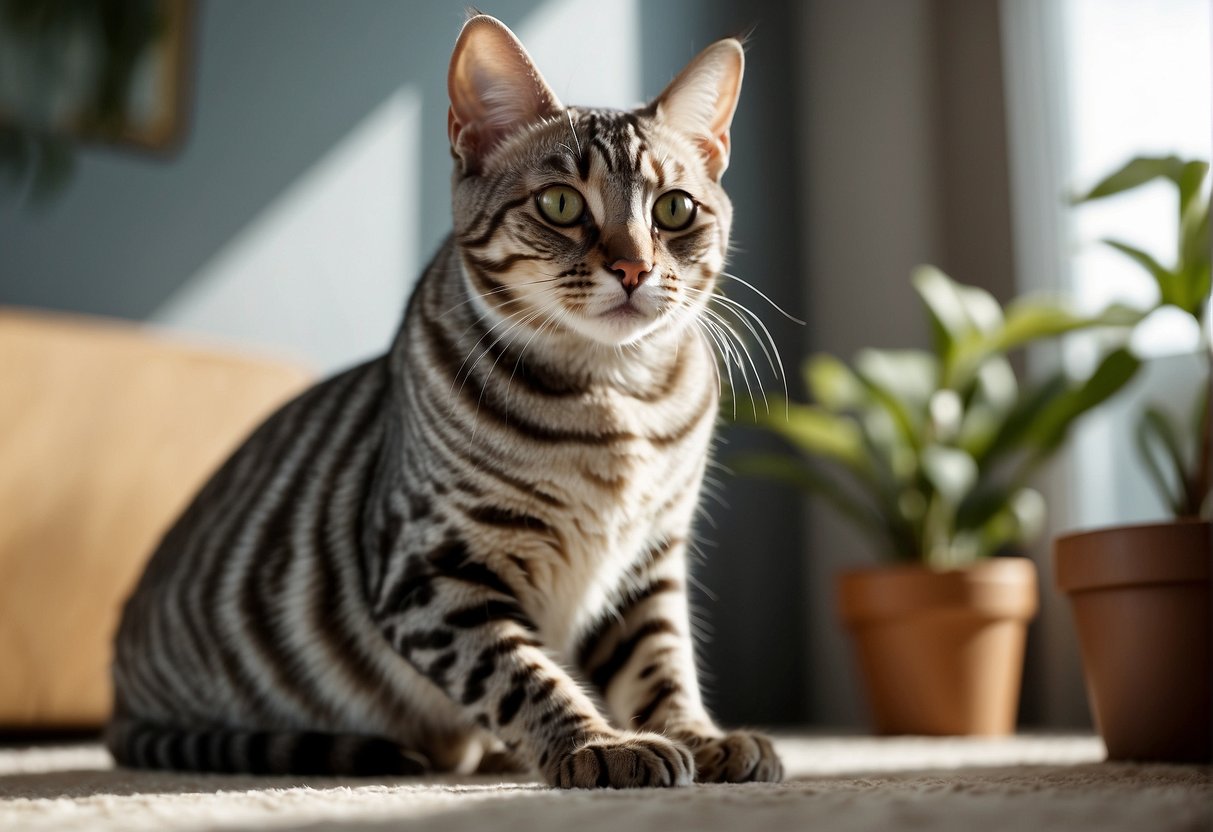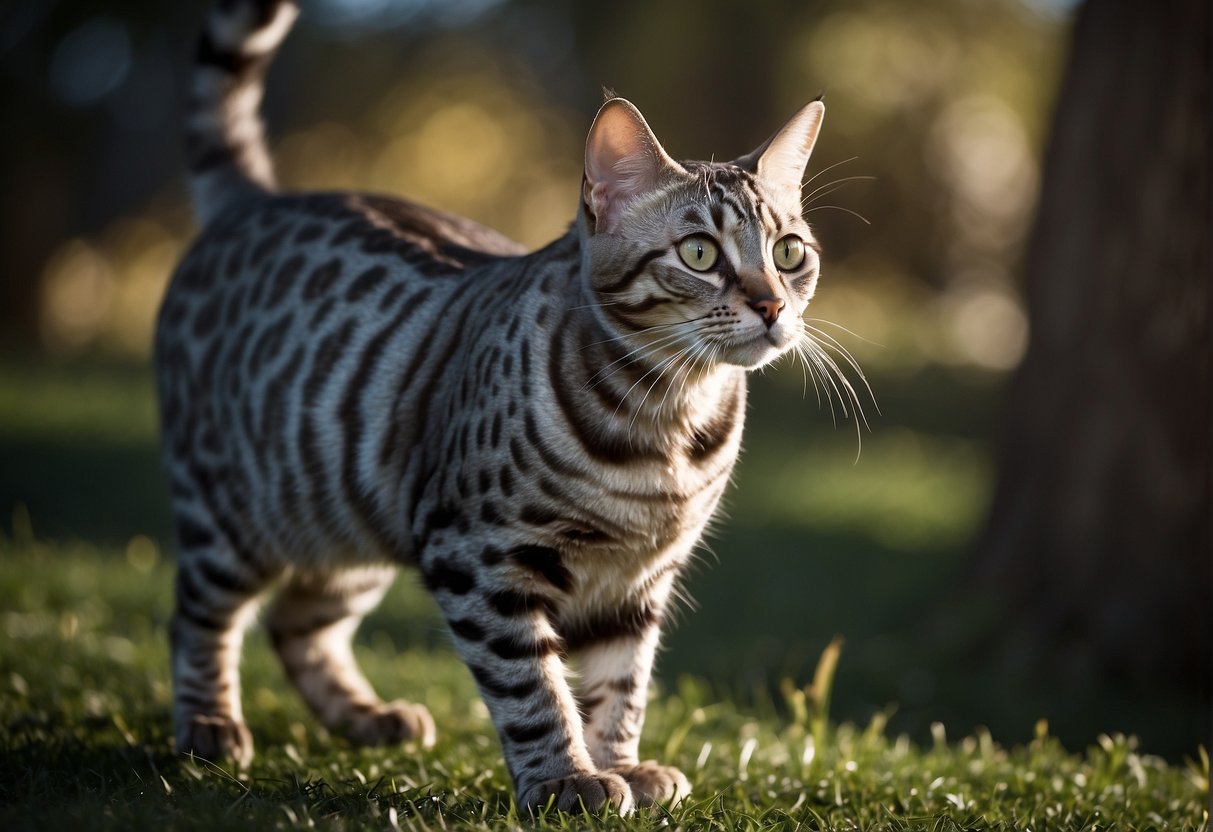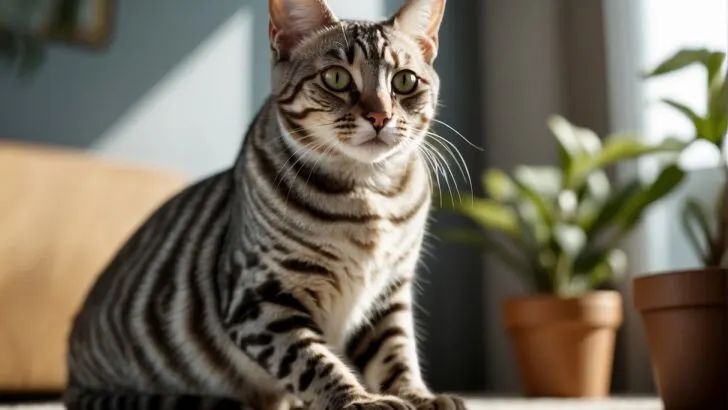Silver Bengal cats are often touted as being hypoallergenic, making them a compelling choice for cat lovers with allergies. The term “hypoallergenic” is a bit misleading, as no cat breed is completely free of allergens.
However, the unique pelt-like coat of Bengal cats produces less dander compared to many other breeds, which is the usual culprit for triggering allergic reactions.

Owning a silver Bengal cat can be a wonderful experience, especially if you’re concerned about allergies. Their minimal shedding is not only good news for your allergies but also means less grooming compared to other long-haired breeds.
Add to that their distinctive, striking silver coat that glistens, and you have a breed that is as easy to love as it is to look at. Their coat’s origin traces back to the Asian Leopard Cat, from which Bengals inherit their beautiful patterns and reduced-shedding characteristics.
What’s great about Bengals is that their playful and intelligent nature makes them delightful companions. Not only will you find their hypoallergenic qualities beneficial, but you’ll also enjoy the active and engaging temperament typical of this breed.
All About Bengal Cat Allergies

When considering a Bengal cat, you’re likely curious about their impact on allergies. Understanding how these cats affect those with sensitivities is key to a harmonious home.
Hypoallergenic Claims and Research
Bengal cats are often labeled as hypoallergenic, meaning they are less likely to cause allergic reactions compared to other breeds. This is because they produce lower levels of the protein Fel d 1, which is a common allergen found in cat saliva, dander, and urine.
While research shows Bengals may be better companions for individuals with mild cat allergies, it’s vital to acknowledge that no cat is completely hypoallergenic. Regular grooming can help minimize the spread of allergens, as less dander and saliva remain in their coat to be shed around your home.
- Key Factors Influencing Allergens in Bengals:
- Protein (Fel d 1): Lower production in Bengals.
- Grooming: Frequent grooming can reduce dander.
- Shedding: Bengals have a coat that sheds less.
Managing Allergies as an Owner
If you have allergies but love Bengals, you can implement strategies to reduce allergen exposure:
- Allergy Management at Home:
- Invest in air purifiers with HEPA filters to capture dander particles.
- Clean your home regularly, focusing on areas where your cat spends time.
- Health Considerations:
- Bathe your cat occasionally to remove allergens from the fur.
- Ensure regular health check-ups as healthy cats may produce fewer allergens.
Allergies vary, and spending time with Bengals before committing to ownership can be a practical approach to gauge your reaction.
Are Silver Bengal Cats Suitable for Allergy Sufferers?
When considering a Silver Bengal cat as a pet, your allergy concerns are valid; their hypoallergenic properties may be beneficial, yet precautions are necessary.
Minimizing Allergic Reactions to Silver Bengal Cats
To reduce the likelihood of allergic reactions, first understand that Silver Bengal cats produce less Fel d 1 protein, which is often the culprit behind cat allergies.
However, there’s no guarantee that they won’t cause any reaction at all. It’s crucial to spend time with a Silver Bengal before bringing one home to see how your allergies respond. Keeping the living space clean and well-ventilated can also minimize the amount of allergens in the air.
Preventive Measures:
- Create an Allergen-Free Zone: Designate certain areas of your home, like the bedroom, as cat-free zones.
- Air Purifiers: Consider installing HEPA filters to capture dander and other allergens.
- Regular Cleaning: Vacuum carpets and furniture frequently using cleaners with HEPA filters.
Grooming Tips for Reducing Silver Bengal Dander
Regular grooming is essential in keeping dander at bay. Here are some tips that can help:
- Brush Your Cat Regularly: Aim for daily brushing to capture loose fur and dander before it spreads.
- Use a Dander-Reducing Shampoo: Find a shampoo formulated to reduce dander and consider a monthly bath.
- Wipe Your Cat with a Damp Cloth: This can help remove saliva and dander from their coat.
Grooming Tools:
- Metal comb or brush
- Dander-removal pet wipes
- Hypoallergenic cat shampoo
Remember to always wash your hands after handling your cat or cleaning their living area to limit the spread of allergens.

My name is James, and welcome to FAQCats!
Along with our team of cat owners, expert pet enthusiasts, and pet professionals, we aim to write engaging helpful, engaging content about cats. At FAQCats we strive to provide content that’s accurate and fun to read. Our team writes about everything related to cats; even the most complex of topics. Through extensive research and caring for our own fur-pals, we’re able to provide something cat owners worldwide will love. Have a look around, and leave us feedback anytime!

